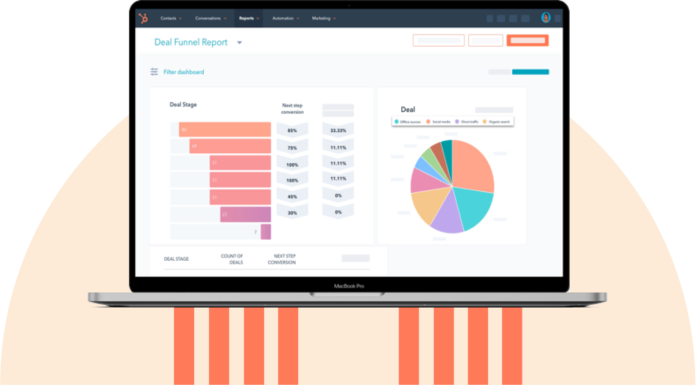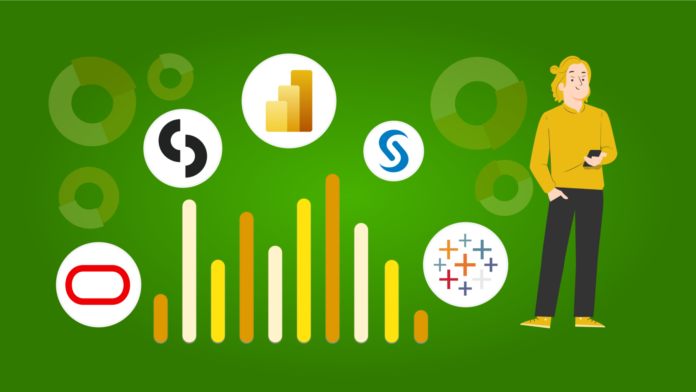The best thing about business software is that the majority of them are relatively new concepts, so if you’ve been in the industry for over a decade, you remember what it was like before these tools were available. Or if they were available, they were probably in a more primitive form. If not, you can always ask some of your senior colleagues.
So, just imagine that you could travel in time and, let’s say, give your 2005 self ChatGPT 4.0, would you do it?
Still, it’s preposterous to even consider time travel to deliver a tool that doesn’t exist yet when there are so many incredibly powerful tools that do exist, only you’re not using them. Here are five such tools that you should incorporate into your business operations as soon as possible (if you haven’t already).
1. Collaboration tool

No modern business runs without a collaboration tool. You’ll use this platform to run all your projects and coordinate day-to-day tasks.
- Great for remote teams: A collaboration tool is a virtual office, and, as such, it’s great for remote team productivity. Just think about it, like in an actual office, every department has its space. Different projects act as different workspaces. This simplifies the work structure so much that even teams with actual offices are introducing it.
- Conflict resolution: A lot of office conflict comes from your inability to establish the truth. Imagine two people arguing over the task not being submitted by the deadline, with one claiming this wasn’t an actual deadline. If you could prove what happened immediately, everything would be settled smoothly. However, the longer it takes to resolve the issue, the more dug-in people are, which makes it harder to admit fault or apologize. With a collaboration tool, everything leaves a digital footprint.
- Version control: With multiple people working on the same project, it’s often hard to figure out who did what. While this is important for accountability (which we’ve discussed in the previous segment), it’s also relevant for accuracy and backup-making. Ultimately, you’ll also want to know where the final version originated.
Keep in mind that this drastically boosts transparency, as well. It’s just easier for everyone to track what’s going on and who’s on which project.
2. Accounting software

Accounting software like those Techopedia lists allows you to take more control over your company’s finances. That’s not to say you don’t still need a professional to help, but having a personal overview is vital.
- Accuracy: Data entry is always problematic when done by humans. All you have to do is mistake a single comma or a decimal point, and the entire thing is off. The problem is that, with accounting, this might be legally troublesome. Missing one zero off your report can land you in trouble and even end your enterprise. With the help of accounting software, this shouldn’t happen.
- Invoicing and billing: You’ll spend so much time adjusting invoices and bills as an enterprise. Accounting software streamlines this. Now, the job of many bookkeepers is strictly transactional, which means they’ve spent too much time invoicing. With accounting software, your accountants and bookkeepers can direct their attention elsewhere.
- Expense tracking: You can be smarter with your money when you finally figure out where the bulk of it is going. With the help of the right accounting software, you can see this in real-time. More importantly, this will make you more effective at spotting employee theft.
Ultimately, this point may be redundant in 2024 since almost every business already uses accounting software. Those that don’t have some catching up to do.
3. CRM platform

The success of your enterprise always comes down to your relationship with your customers. Do they trust you, and how much? Do they like you more than other brands within the same industry? What are they looking for? All of this and more are why you need a CRM platform.
- Better customer relationships: A CRM platform’s perks and benefits can fit into this point. Such a platform can help you interact more efficiently with your clients/customers by giving you all the information available and analyzing it to provide insights. This leads to enhanced customer service.
- Data centralization: With a CRM, you’ll have all the customer data in one place. This means that when you need it, you’ll get it on demand. It also simplifies data analysis, especially since most CRMs transform this data into a structured form. At the same time, most AI analytical tools (which we’ll discuss later) can work with unstructured data just fine.
- Marketing automation: One of the main reasons for using a CRM tool is for marketing purposes. Regardless of whether it’s crafting a campaign based on your customers’ preferences or finding the best offer to retarget them via email, this is one of the things you’ll need CRM for.
Customer relationships are always important, regardless of industry or business size. Therefore, a CRM is always a good idea.
4. Data analytics and business intelligence

Modern data analytics tools are far more potent than they ever were in the past. With the help of concepts like AI, NLP, and process mining, the accuracy derived from vast volumes of data is simply unprecedented. With that in mind, here are a few reasons you need good analytics tools.
- Data-driven decision-making: Intuition is a well-known trait of entrepreneurs; however, many people talk about intuition without understanding it. A person with a ton of experience will recognize a pattern even if they’re unaware they’re doing so. You can make this process more conscious with a BI (business intelligence) tool.
- Forecasting and planning: When you have enough facts, you can predict the outcome. There are only two bottlenecks: the lack of computing power and the lack of data. Now, the latter shouldn’t be a problem in today’s world, and with the right analytics and BI tool, neither will this.
- Resource optimization: Organizational efficiency is knowing which resource to use at which time. With great analytical power, you can predict these bottlenecks and drastically reduce the likelihood of downtime soon.
Overall, your and your competitors’ analytics are an invaluable resource for any enterprise. It’s incredibly
5. Customer support

There are many reasons why your customer support is so important. It’s a direct line that your audience has to your business, and you must improve it by any means. The right tool can give you a few benefits:
- 24/7 Support: A platform is always available. It doesn’t get demoralized during night shifts, it doesn’t get sick, and it doesn’t charge extra for overtime. For your customers, this means that they’ll get support any time of day. This shows that you’re committed to their problems as much as you care about your own enterprise.
- Customer history: It’s useful for a member of your customer support to have all the previous interactions with the customer calling. If they’re calling multiple times about the same problem, they, naturally, require a different approach. This could help facilitate the process so much and increase everyone’s satisfaction with the process.
- Self-service options: The majority of people prefer to handle the problem on their own. They would much rather find what they’re looking for in the FAQ, on Reddit, or YouTube. With this platform, you can give them a much better way to handle this issue.
You can’t run a good business without solving the customer support issue and if you can do that with a single platform, this opportunity is just too good to miss out on.
There’s the right tool for everything, you just have to find it
Even if you are already using some of these tools, there’s always a way to use them better. Also, these tools are constantly updated, so you can shop around every few months to see if there’s something better on offer. Overall, don’t let an opportunity slide.








